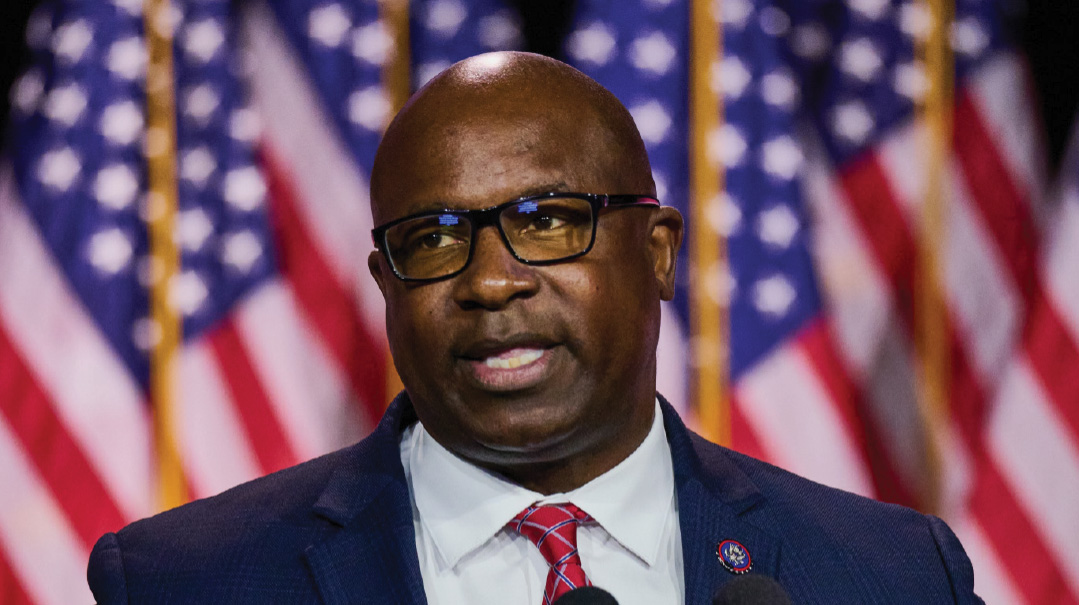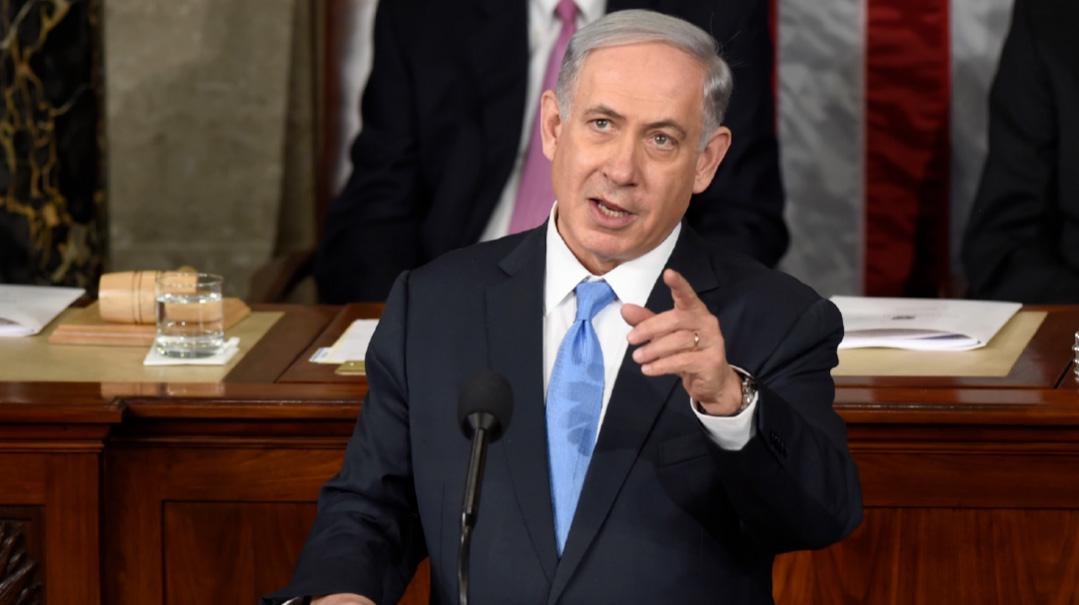Kissinger’s Legacy Lives On

The straight line from Kissinger to the White House's strategy on Hamas

Henry Kissinger, who passed away last week at 100, played Realpolitik like a virtuoso, often balancing conflicting agendas, based on his perception of American interests
IF you are among the many struggling to comprehend the complexities of America’s Middle East policy during these dangerous days, as Israel battles Iranian proxies on multiple fronts, it helps to understand how Henry Kissinger, who passed away last week at age 100 at his Connecticut home, set the tone.
Kissinger, who served as secretary of state in the Nixon and Ford administrations and advised every US president, formally or informally, from Kennedy to Trump, was often described as Machiavellian — in other words, like the Renaissance political theorist who notoriously argued that “the end justifies the means.” Colleagues with whom Kissinger interacted found him to be charming, exceedingly arrogant, or both simultaneously.
In my sole professional encounter with him, I found him to be studious and authoritative. In April 1984, I was a journalist in Charlotte, North Carolina, covering Kissinger’s visit to a World Trade Association conference. Kissinger, then an advisor to President Reagan on Latin America, used his visit to endorse the populist conservative Senator Jesse Helms for reelection, even though Helms was often a vocal critic of Kissinger’s foreign policy. Questioned by mostly young journalists unfamiliar with foreign policy, Kissinger answered patiently and comprehensively, peering over his trademark Legend frame eyeglasses that were a staple of opticians’ inventories in those days.
Kissinger was a living legend himself, leaving an indelible mark on American foreign policy, and on the entire world. In a three-year span of global shuttle diplomacy, Kissinger paved the way for normalizing US-Chinese relations in 1972, won the 1973 Nobel Peace Prize for negotiating a cease-fire in the Vietnam War, and negotiated a détente with the Soviet Union that led to a nuclear arms treaty between the two superpowers.
Active and functioning until the end, Kissinger published a book at age 99 and granted interviews until his final month.
In mid-October, Kissinger compared Hamas’s surprise October 7 attack to the Yom Kippur War, telling a German television station that it was Hamas, and not Israel, that needed to pay the price.
“Of course, the first instinct is to bring back peace, but you can’t make concessions to people who have declared and demonstrated by their actions that they cannot make peace,” Kissinger said.
Kissinger’s statement was in keeping with his own brand of Realpolitik — a term coined by a 19th-century German politician to describe foreign affairs as approached from a practical and rational perspective rather than from a moral or ideological one.
Kissinger played Realpolitik like a virtuoso, often balancing conflicting agendas, based on his perception of American interests at any given time.
A Gradual Approach
Born in Germany in 1923 to an Orthodox Jewish family, Heinz Alfred Kissinger anglicized his name to Henry after immigrating to the US in 1938, two months before Kristallnacht. Kissinger became a US citizen in 1943 and served as an army counterintelligence officer during World War II. He earned a PhD from Harvard in 1952, and joined their faculty, teaching government and international affairs while moonlighting as a consultant to the Kennedy and Johnson administrations. When Richard Nixon became president in 1969, he appointed Kissinger as national security advisor, and eventually as secretary of state. Nixon resigned in 1974 after the Watergate scandal, and his successor, Gerald Ford, kept Kissinger in the job.
As Nixon’s national security advisor during the Yom Kippur War, Kissinger saw the war was going badly for Israel in its opening days. He advised Nixon to resupply Israel militarily so that it could turn the tide of the battle.
Yet three weeks later, when the IDF was on the verge of surrounding the Egyptian Third Army, with a shot at conquering Cairo, Kissinger traveled to Moscow, where the US and the Soviet Union agreed to support a UN cease-fire to end the war.
In Kissinger’s worldview, if neither Israel nor Egypt won the war, they would be more likely to enter negotiations. While both Nixon and other players in the international community were calling for Israel to return to the pre-1967 armistice lines, Kissinger advocated a gradual approach, mediating two separate disengagement agreements separating Israeli and Egyptian troops, and giving both sides the opportunity to build trust.
However, Israel balked at the second disengagement when Egypt demanded to station some of its troops in the Sinai Peninsula. Then Kissinger showed his teeth, initiating a freeze on all scheduled arms deliveries to Israel. Shortly thereafter, President Ford piled on, calling for a reassessment of US-Israeli relations.
Ford quickly backed off after the pro-Israel AIPAC lobby signed 76 US senators to a letter criticizing the president for blaming Israel for the breakdown in negotiations, and urging the administration to be “responsive to Israel’s urgent military and economic needs.” In later interviews, Kissinger alleged the threat to withhold aid was just a ploy to pressure Israel, because the only arms to be “withheld” were fighter jets that weren’t scheduled for delivery anyway for another two years.
Stumbling on Step by Step
Eventually, Israel and Egypt came to terms, vindicating Kissinger’s go-slow approach, and three years later, the next American president — Jimmy Carter, and his new secretary of state, Cyrus Vance — built on Kissinger’s deal, brokering the Camp David Peace Treaty between Israel and Egypt, which has stood the test of time.
Kissinger’s piecemeal approach formed the concept behind the Oslo Accords, under which Israel was to make incremental withdrawals from Judea and Samaria in return for peace with the Palestinian Authority, with both sides required to show good faith.
Oslo proved to be a colossal failure, even though Kissinger criticized the deal, and its implementation, in a 1997 op-ed he wrote for the Washington Post. While noting that the Oslo agreement “represents the culmination of the step-by-step approach [I] devised nearly 25 years ago,” he nailed the major difference between Israel’s negotiations with Egypt and its negotiations with the Palestinian Authority: “The weird aspect of the Oslo process is that two political units are discussing territorial adjustments without really accepting each other’s legitimacy.”
At the same time, Kissinger merely suggested some tweaks to the agreement that proposed Israel declare its final borders and stage a withdrawal from them, including recognition by Israel of a sovereign Palestinian state, with “security guarantees to Israel within that context” — whatever that meant to Kissinger.
In other words, Israel shows all of its cards, while its enemies either bluff or play their own cards close to the vest.
Twenty-six years after Kissinger’s op-ed, Israel still accepts the PA on some level, but the Palestinian Authority has never accepted Israel’s legitimacy and never will. Nor does Hamas, or Hezbollah, or Iran.
Somehow, that doesn’t seem to matter to the Biden administration, which seems to be sticking to the Kissinger script of playing both sides against the middle in the current Gaza conflict. It comes across with US support for rearming Israel in its battle against Hamas, while withholding support for a knockout blow in Gaza, or on the northern front with Lebanon.
That’s textbook Kissinger. Let Israel win, but not too big, and make sure the Arabs don’t lose.
Kissinger has passed on, but there is much to be learned from the foreign policy legacy he left behind.
Zalman Shoval, Israel’s former ambassador to the US, postulated that Kissinger would excuse both his successes and his failures with Realpolitik.
As Shoval quoted Kissinger: “Foreign policy is not a story with a beginning and an end, but a process of managing and tempering ever-recurring challenges.”
It’s a very elegant line that explains the vagaries of foreign affairs, but with so many Jewish lives on the line in this day and age, it rings hollow. —
(Originally featured in Mishpacha, Issue 989)
Oops! We could not locate your form.







